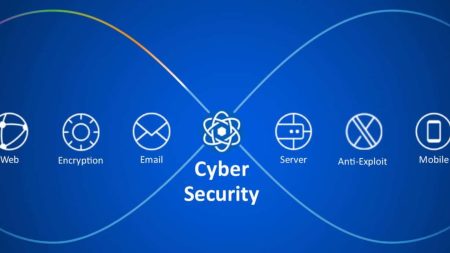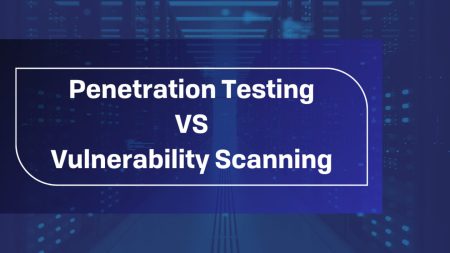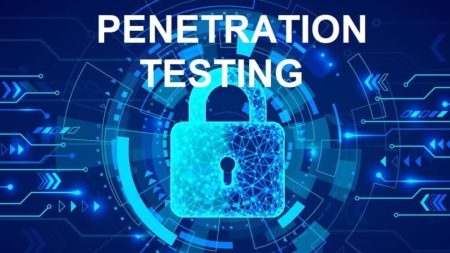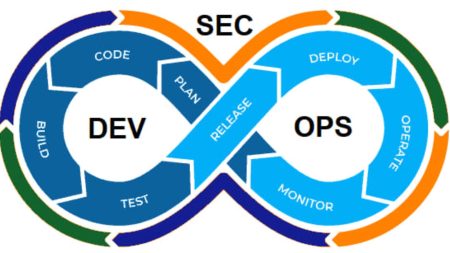IT Security Audit is Hacker’s Worst Nightmare
Cybercriminals don’t take coffee breaks. They don’t sleep either. While businesses focus on growth, cyber threats evolve, lurking in the digital shadows, ready to strike. The remedy? IT security audit services – the watchdogs standing between you and digital chaos. If you’re thinking, “Do I really need this?” imagine leaving your front door wide open in a neighborhood of pickpockets. Feeling uneasy yet?
Now, picture this: You store your most valuable assets – customer data, financial records, intellectual property – behind a digital fence. But what if that fence has holes? What if hackers have the key? IT security audits act as both a locksmith and a security guard, ensuring that only the right people have access while keeping intruders at bay. Without a proper audit, you might as well roll out a welcome mat for cybercriminals.
Cybersecurity Audits are The Firewall Your Business Can’t Afford to Skip
Data breaches cost businesses an average of $4.45 million per incident, according to IBM’s 2023 Cost of a Data Breach Report. That’s not pocket change. Cybersecurity audit services serve as the digital detective, uncovering security gaps before hackers exploit them. Think of an IT security audit as a high-stakes game of hide and seek. Hackers hide, your auditors seek. If the vulnerabilities aren’t exposed first, bad actors will gladly do the honors. No business is too small to escape their radar. In fact, 43% of cyberattacks target small businesses (Verizon DBIR 2023).
IT Security Audits are Like an Annual Physical for Your Business
Skipping an IT audit is like skipping doctor visits – you might feel fine, but silent issues could be brewing. A cybersecurity audit diagnoses weak spots before they become a crisis. It examines:
- Network security – Is your firewall more like a castle wall or a picket fence? Firewalls are the first line of defense against cyber threats, but outdated or improperly configured firewalls might as well be open doors. Regular assessments ensure that unauthorized traffic stays out while legitimate users stay protected.
- Access control – Who’s holding the keys to your digital kingdom? Unrestricted access can spell disaster. IT audits assess permissions and enforce least-privilege access, ensuring employees have only the access they truly need.
- Data protection policies – If customer data vanished, would you have a backup plan? Secure backups and encryption policies must be in place to safeguard sensitive information from ransomware attacks and system failures.
- Incident response strategy – A cyberattack hit. Now what? Without a well-defined incident response plan, a breach can spiral into chaos. IT security audits evaluate response readiness and help organizations establish clear procedures.
- Cloud security – Are cloud assets fortified or just floating unsecured? Cloud misconfigurations can lead to massive data breaches. Regular information security audits analyze cloud access controls, encryption measures and overall security posture.
- Third-party risk assessment – Are your vendors a weak link in your defense? Supply chain attacks are on the rise. A thorough IT security audit assesses the security practices of external partners to prevent vulnerabilities from spreading into your systems.
Without IT & cyber security audit services, you’re flying blind through a thunderstorm. Not ideal, right?
Who Needs an IT and Cyber Security Audit?
Big banks, hospitals, e-commerce sites, even your local bakery – no one is immune. If your business stores, processes or transmits sensitive data, cyber security audit services are a necessity. Regulatory compliance is another beast. Fail to meet HIPAA, GDPR, or PCI DSS standards and you could face multi-million-dollar fines.
Industry-Specific IT Security Audit Benefits
IT and cyber security audit services:
Healthcare:
- HIPAA mandates regular audits to prevent patient data breaches.
- 88% of healthcare organizations have suffered cyberattacks (HIPAA Journal).
Finance:
- Banks face rigorous cybersecurity audit services due to regulatory oversight.
- 25% of financial firms experience more than five cyberattacks yearly (Boston Consulting Group).
Retail & E-commerce:
- PCI DSS compliance ensures secure payment transactions.
- 62% of businesses targeted by ransomware are in retail (Cybersecurity Ventures).
Manufacturing & Supply Chain:
- 70% of breaches in this sector stem from third-party vulnerabilities (IBM).
Cybersecurity audits aren’t just a good idea – they’re a legal and financial shield.
How IT Cyber Security Audit Services Keep Hackers Out?
A good cybersecurity audit isn’t a checkbox exercise. It’s a digital battlefield assessment. So, here how IT audit services work:
Risk Assessment
Think of this as the foundation of your security strategy. Risk assessments involve identifying potential threats, evaluating the likelihood of attacks, and determining the impact of vulnerabilities on business operations. This process includes:
- Examining internal and external threats.
- Assessing network security controls.
- Evaluating third-party risks.
- Identifying data exposure risks.
A thorough risk assessment helps organizations prioritize security efforts and allocate resources effectively, ensuring maximum protection against potential cyber threats.
Penetration Testing
Penetration testing, or ethical hacking, is a simulated attack against your IT infrastructure. Security experts attempt to breach systems using real-world hacker tactics. The goal is to:
- Identify security gaps before cybercriminals do.
- Test the effectiveness of firewalls, intrusion detection systems, and endpoint security measures.
- Expose weak authentication mechanisms.
- Provide an actionable roadmap for improving security posture.
Penetration testing isn’t just a one-time exercise; organizations should conduct it regularly to keep up with evolving cyber threats.
Compliance Check
Industry regulations, such as GDPR, HIPAA, and PCI DSS, mandate stringent security measures. A compliance check ensures that organizations:
- Meet regulatory requirements.
- Implement necessary security frameworks.
- Reduce the risk of hefty fines and legal consequences.
- Establish trust with customers by demonstrating robust security practices.
A well-executed compliance audit helps businesses avoid penalties while strengthening overall cybersecurity.
Policy Review
Security policies serve as the backbone of an organization’s defense strategy. However, many businesses fail to enforce them effectively. A policy review involves:
- Evaluating existing cybersecurity policies.
- Ensuring employees understand and adhere to security guidelines.
- Updating policies to reflect emerging threats.
- Aligning policies with industry best practices.
Even the best security policies are useless if employees don’t follow them. A robust policy review ensures security protocols are practical and enforceable.
Remediation Plan
Once vulnerabilities are identified, organizations need a roadmap for addressing security gaps. A remediation plan includes:
- Prioritizing critical vulnerabilities based on risk level.
- Implementing necessary security patches and fixes.
- Strengthening access controls and authentication mechanisms.
- Continuously monitoring and updating security defenses.
A proactive remediation strategy prevents minor vulnerabilities from snowballing into major security incidents.
Without these key steps, businesses risk catastrophic breaches, reputation damage and financial losses. A comprehensive IT security audit ensures that organizations remain resilient against evolving cyber threats while safeguarding sensitive data and critical assets.
Common IT Security Audit Findings & How to Fix Them
Weak Passwords & Poor Authentication
81% of hacking-related breaches stem from weak passwords (Verizon DBIR). Weak passwords are like leaving your house key under the doormat – hackers know where to look. Attackers use brute-force techniques and credential stuffing to gain unauthorized access, leading to significant breaches. Enforce multi-factor authentication (MFA) and require complex passwords. Implement password managers to securely store and generate strong credentials. Educate employees on the dangers of password reuse and social engineering tactics
Unpatched Software & Systems
60% of breaches involve vulnerabilities with available patches (CSO Online). Leaving software unpatched is like ignoring a leaky roof – it only gets worse over time. Cybercriminals exploit known vulnerabilities to infiltrate systems and execute ransomware attacks or data exfiltration. Automate patch management to ensure updates are deployed promptly. Establish a vulnerability management program that continuously scans for and mitigates security weaknesses.
Phishing & Human Error
95% of security incidents result from human error (IBM). Cybercriminals rely on deception. Phishing emails trick employees into revealing sensitive information or downloading malware. One careless click can compromise an entire network. Conduct frequent, realistic phishing simulations and cybersecurity training. Encourage a culture of skepticism – employees should verify suspicious emails before clicking links or opening attachments. Deploy email security filters and endpoint detection tools to block phishing attempts.
Misconfigured Cloud Settings
82% of data breaches involve cloud misconfigurations (Gartner). Cloud environments provide convenience but also introduce risks if improperly configured. Open storage buckets, weak access controls, and improper identity management can expose sensitive data to attackers. Use cloud security posture management (CSPM) tools to monitor configurations. Apply least-privilege access controls, encrypt data at rest and in transit, and conduct regular security reviews to detect misconfigurations before they become exploits. By addressing these common security flaws, organizations can significantly reduce their risk exposure and strengthen their overall cybersecurity posture. A proactive security approach, combined with regular IT security audits, is the key to staying ahead of evolving threats.
Cybersecurity Audit Services Pay Off
Statistics prove the return on investment for IT security audits. Businesses that implement regular cybersecurity audits reduce breach risks by up to 70% (CSO Online, 2023).
- 60% of small businesses fold within six months of a cyberattack. (National Cyber Security Alliance)
- Data breaches cost U.S. companies an average of $9.48 million. (IBM)
- Zero-trust security models cut data breach costs by 42% on average. (IBM)
An audit isn’t an expense. It’s an insurance policy against digital disaster.
IT Security Audit Services Are Your Digital Bodyguards
Cybercriminals innovate faster than most businesses react. A cybersecurity audit is the preemptive strike against digital threats. Would you drive without seatbelts? Then why leave your business unprotected? Investing in IT cyber security audit services today means avoiding catastrophe tomorrow. A cybersecurity audit isn’t just about compliance – it’s about survival. Businesses that neglect security assessments risk more than just financial loss; they risk customer trust, operational continuity, and brand reputation. With data breaches becoming more frequent and sophisticated, it’s no longer a matter of “if” but “when.”
Final Thought
What conclusions can we draw from all the above information? First, take proactive measures today, ensure your business is fortified against evolving threats. Don’t wait for an attack to expose vulnerabilities – take control now, secure your digital assets and stay one step ahead of cybercriminals. IT security audits are not an expense; they are a long-term investment in your company’s resilience and reputation. Second, we know that cybercriminals outpace the majority of companies in innovation can respond, it’s a fact.
Obviously, cybersecurity audit is your ultimate defense, the barrier between your valuable data and relentless cyber threats. Would you leave your house unlocked? Then why gamble with your business’s security? Invest in IT cyber security audit services today and help your business. Don’t let a security breach be the moment that finally gets your attention. Be proactive, be secure and be the business that thrives while others scramble to recover. The time to act is now!






